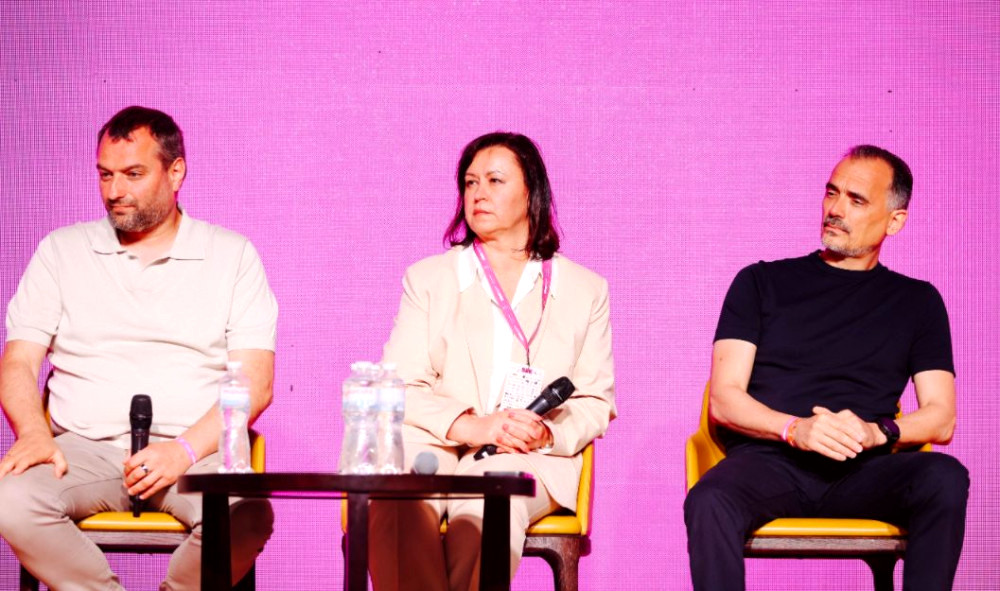The IV Ukrainian Construction Congress, attended by Deputy Minister Natalia Kozlovska, gathered more than 6,000 participants and 300 speakers, including developers, business representatives, builders, architects, and investors.
The congress serves as a crucial platform for discussing current market issues, forming effective solutions, and strengthening business ties. The main goal is to develop strategies that will facilitate rapid recovery and sustainable development of the construction sector and Ukraine as a whole. This year's program focuses on pressing issues related to the development of construction and architecture amid the country's recovery.
“I am extremely grateful for the invitation to this undeniably important event. Today, ongoing dialogue about the construction and architecture sector among all market participants is essential for creating a holistic vision and a concrete development plan for the industry. It will help us not only lay the foundations for a new approach to reconstruction but also implement real projects.
Our primary approach at the Ministry level is to rebuild better than before. It is not just about responding quickly to destruction, but leveraging this opportunity to introduce new approaches and the best global practices in urban planning and architecture. This includes green, barrier-free solutions and a completely new vision for housing and urban infrastructure. A significant part of our work is to create conditions so that all Ukrainians in need can secure housing. This particularly pertains to the development of social housing for IDPs,” emphasized Natalia Kozlovska.
During the Congress, over 40 panel discussions took place. Natalia Kozlovska participated in four of them:
- Labor shortage in construction: how to attract, retain, and upskill professionals in the new realities?
Participants discussed a labor strategy that should be defined at the state policy level and contribute to the overall development of the construction industry, ensuring the engagement and retraining of personnel needed for recovery, as well as shaping the potential ideal profile of a construction specialist in the next 3-5 years.
- Social housing as a new business direction: social projects that transform the real estate market and the role of government subsidies.
Focus was on operational issues related to social housing construction: potential amendments to existing building codes due to the need for mass social housing construction, future funding sources for such projects, and ensuring equitable distribution of social housing among regions, especially considering internally displaced persons.
- Cities of change: how Ukrainian developers are building the future.
Participants concentrated on discussing what construction of the future should look like in Ukraine, especially considering the desire to rebuild what has been destroyed due to Russian aggression under the principle of “better than it was.”
- Improper governance in Ukraine: challenges and solutions.
This panel focused on the construction process management system in Ukraine, potential challenges facing the industry, the digitization of construction, and the updating of relevant legislation.
Additionally, the event featured awards as part of the II all-Ukrainian competition for architects, builders, and developers “Creator of the Year” and the Ukrainian National Award Ukraine Agro 2025.




